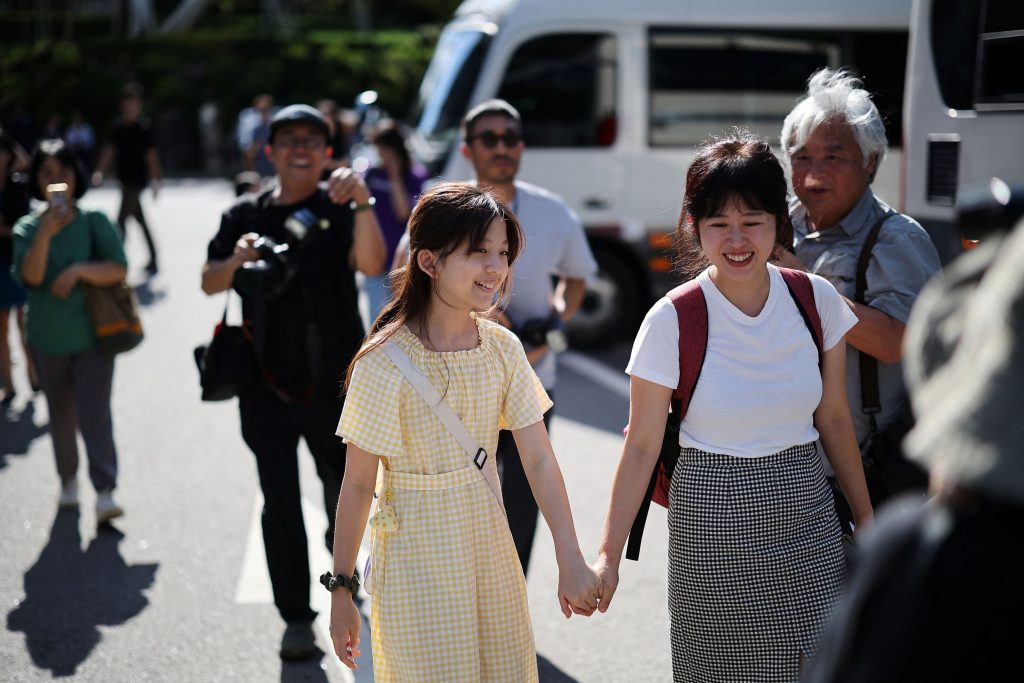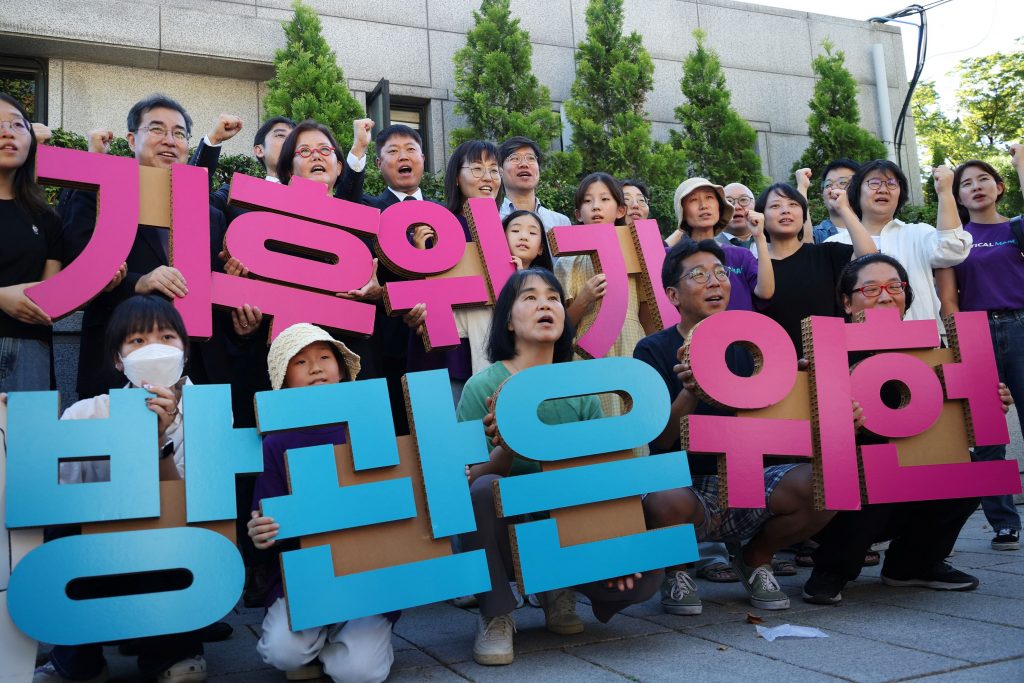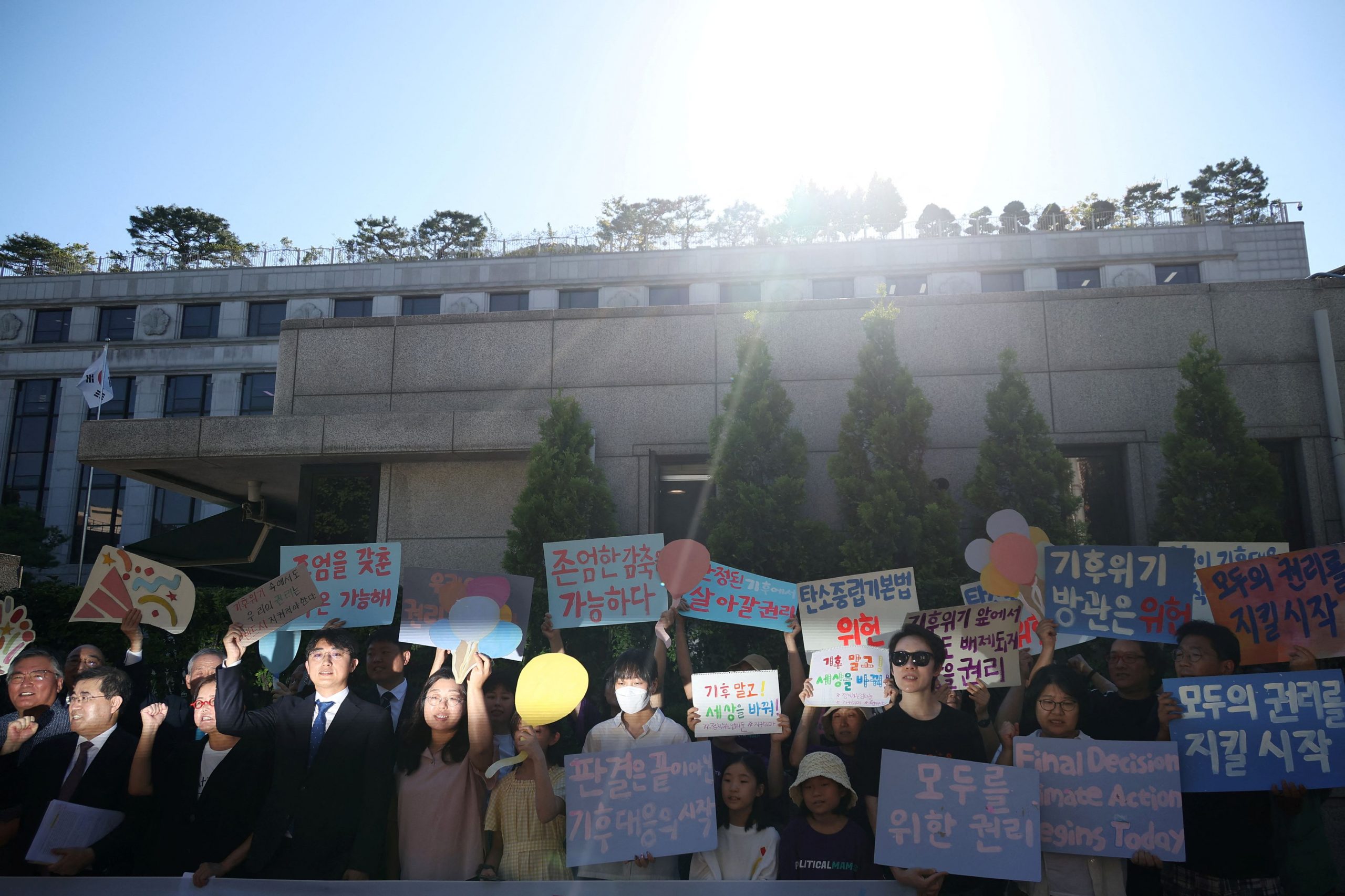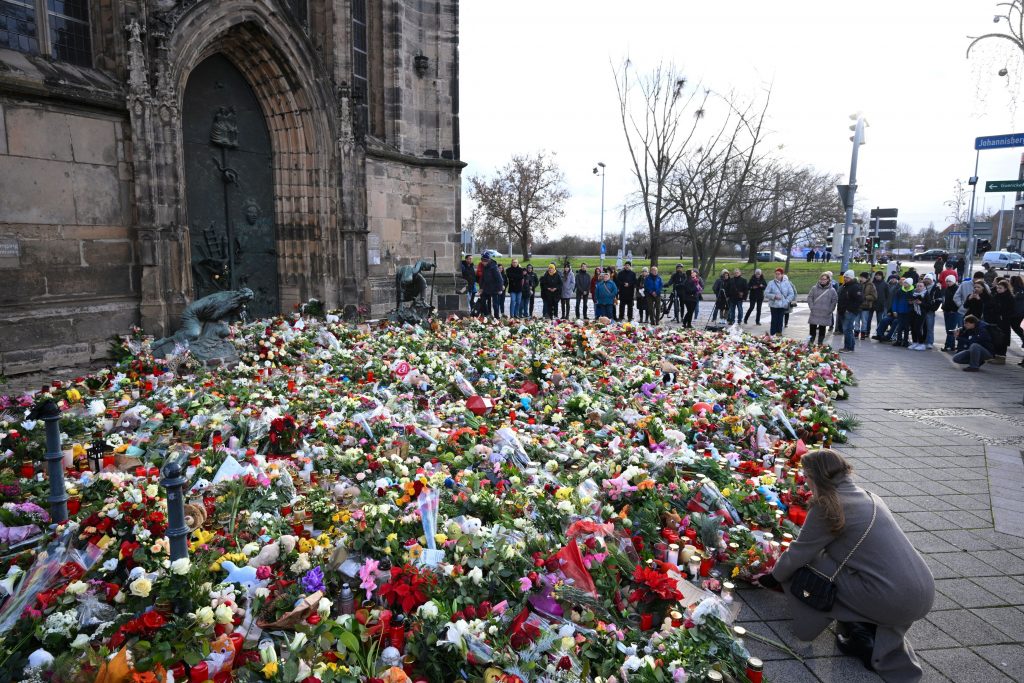SEOUL—Dozens of South Korean children sued their government over inadequate policies targeting climate change , arguing their rights to live in a clean environment had been violated. On Thursday, they earned a major legal victory.
South Korea, home to major semiconductor , battery and electric-vehicle makers , has pledged by the end of this decade to reduce carbon emissions by 40% from a 2018 benchmark. Beyond that, the government specified no other targets before reaching net-zero emissions by midcentury.
The country’s Constitutional Court ruled that the lack of quantitative checkpoints in the subsequent decades had placed an “excessive burden” on future generations and failed to “effectively guarantee gradual and continuous reductions” through 2050.
The decision recognizes that the right to live in a healthy climate is a fundamental constitutional right—which obligates the South Korean government to protect it.
As a result, South Korea must revise the relevant climate policies no later than March 2026. After the ruling, the country’s Ministry of Environment said it respected the court’s ruling and would faithfully implement follow-up measures.
Han Je-ah, 12 years old, was one of the child plaintiffs from four consolidated cases that young climate activists brought before the Constitutional Court. One, referred to as “Baby Climate Litigation,” featured dozens of plaintiffs who were under the age of 5 when the case was filed about two years ago. For another, a group of youths held a press conference about their lawsuit dressed in their school uniforms. Han had testified in front of the judges as the trial hit its final stretch in May.

Han Je-ah and her mother Kim Eun-jae leave after the constitutional court ruled that the country’s climate change law was conditionally unconstitutional, in Seoul, South Korea, August 29, 2024. REUTERS/Kim Hong-Ji
After the Thursday ruling came out, Han wept together with other youths. She said she hopes that the South Korean government, after updating its carbon-emissions target, keeps its promises. “I hope that they will take responsibility for everything,” Han said.
Youth advocacy around climate change has supercharged in recent years after Sweden’s Greta Thunberg became a global face for the issue. The United Nations in 2021 said it couldn’t rule on a complaint filed by young activists, including Thunberg, recommending the claims should be filed via national courts first. In the U.S., climate action represents a key issue for Gen Z voters in November’s presidential election.
The South Korean ruling is the first of its kind in Asia mandating stronger climate actions to protect future generations’ rights. A similar decision was delivered in Germany in 2021, while Europe’s top human-rights court ruled earlier this year that the region’s governments have an obligation to protect their citizens against the effects of climate change.
Other challenges are in motion. Montana’s top court in July heard appeal arguments for a case won by young people who argued the state wasn’t doing enough to combat climate change. In Asia, Japan earlier this month saw its first youth-led climate lawsuit filed against 10 thermal-power companies.
More than 120 countries, including South Korea, the U.S. and the U.K., have set goals to hit net-zero by 2050, according to a recent tally from Decarbonization Channel, which tracks climate-policy data. Not all of those countries’ pledges are legally binding.
All governments that are members of the Paris accord must submit their 2035 emission-reduction targets to the U.N. by next year. That means the South Korean government and its National Assembly may have to offer more prescriptive plans to reduce greenhouse-gas emissions earlier than the court’s deadline, local climate activists say.

Climate activists pose for photographs after the constitutional court ruled that the country’s climate change law was conditionally unconstitutional, in Seoul, South Korea, August 29, 2024. The letter reads “Doing nothing for climate change is unconstitutional”. REUTERS/Kim Hong-Ji
The Constitutional Court didn’t articulate what the new emissions targets should be. But South Korean officials now have a legal obligation to rectify the issue, said Youn Se-jong, an attorney and director at Plan 1.5, a nonprofit climate-policy organization based in Seoul. “The new targets will have to be stronger than the previous ones,” Youn said.
The court dismissed some other claims from the plaintiffs, including the argument that the government’s 40% carbon-emission reduction target by 2030 was unconstitutional.
South Korea is one of the world’s largest energy consumers, with major manufacturers such as Samsung , Hyundai and LG . The country earns a “highly insufficient” overall rating—the second lowest of five levels—from Climate Action Tracker, a scientific consortium that evaluates governments’ emissions plans.
The consortium cited 2022 research that put South Korea’s share of renewables in its power mix as the lowest among members of the Organization for Economic Cooperation and Development, a grouping of mostly wealthy nations.
Write to Jiyoung Sohn at jiyoung.sohn@wsj.com and Timothy W. Martin at Timothy.Martin@wsj.com



